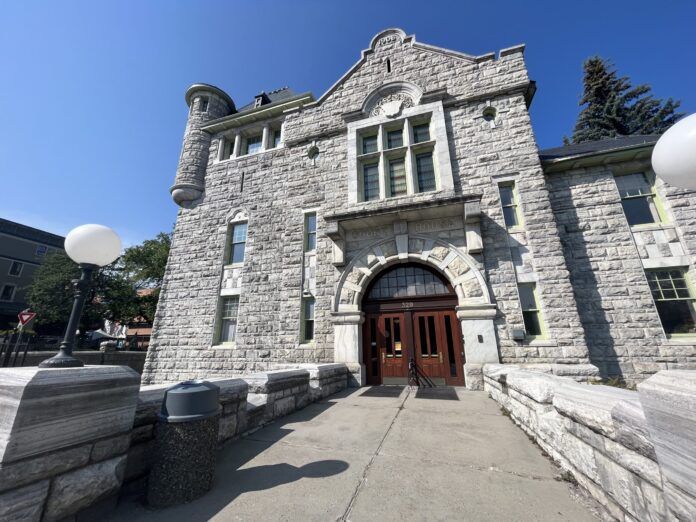A jury strongly encourages police-worn body cameras and other policy changes following a coroner’s inquest into the RCMP-involved shooting of Waylon Edey.
Edey, a 39-year-old man from Yahk died after Cst. Jason Tait opened fire on the Kinnaird bridge in January 2015. Tait was charged with manslaughter but was found not guilty in 2020 following an eight-week trial.
Coroners inquests are mandatory whenever someone dies at the hands of police or while in police custody, to hear evidence and allow a jury to make recommendations to prevent similar deaths.
The five-day inquest in Nelson heard multiple witness testimonies including from Tait, Edey’s family members, other individuals involved the night of the incident, and forensic experts.
Concluding the inquest, a jury presented multiple recommendations to presiding coroner Kim Ibster that included speeding up the introduction of police-worn body cameras after hearing Tait’s testimony that body cameras could have aided in the overall investigation.
Tait told the jury that the RCMP is rolling out a pilot project where some detachments in the country will see all officers wearing body cameras in 2024.
The jury also recommended that the Insurance Corporation of B.C adjust its polices that currently allow prohibited drivers to insure and register vehicles after learning that Edey had multiple driving infractions and a suspended license the night of the incident but was still the registered owner of the vehicle involved.
They also suggested that the Solicitor General’s office, Minister of Public Safety and the RCMP should explore options that would allow for better communication between officers and bars surrounding highly drunk people, after learning Edey had visited four different bars leading up to the incident but was only reported intoxicated by one.
Other recommendations included better de-escalation training for RCMP officers and improved federal and provincial laws that would prevent high-risk, prohibited drivers from getting behind the wheel.





